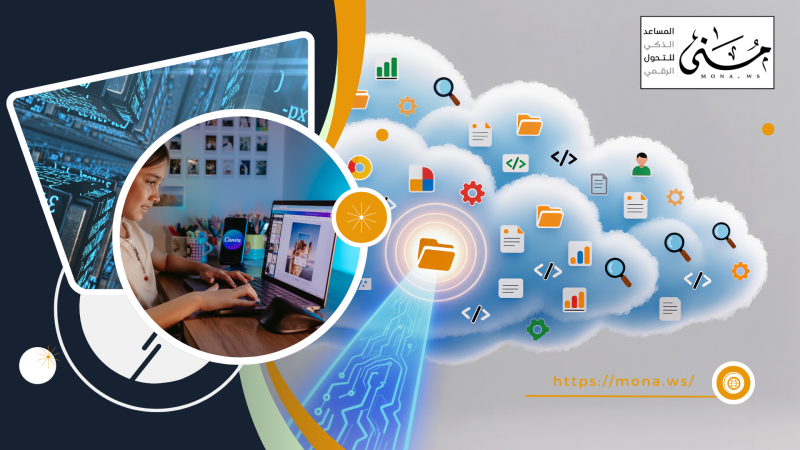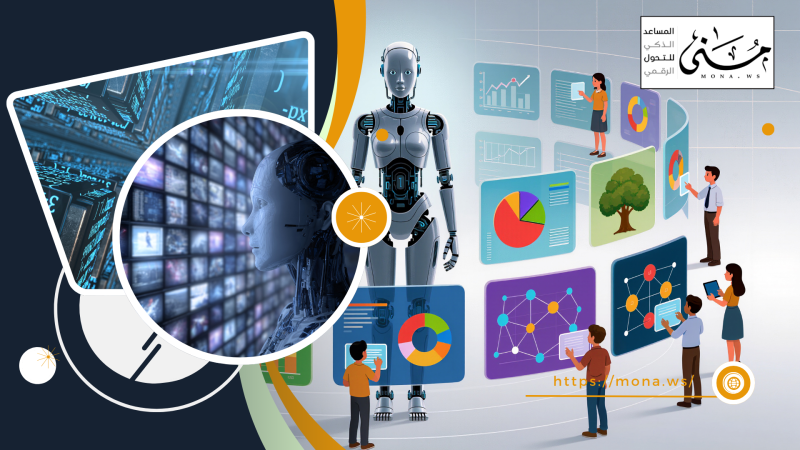Continue reading the article to learn more information.
About SystemsHCM
Human capital management systems are known as (HCM) are advanced technology tools that aim to improve human resource management within organizations. These systems go beyond traditional roles such as payroll and attendance management to include talent management, employee training, and performance analysis.
The systems are characterized byHCM is able to provide comprehensive solutions that suit the needs of different organizations, from automating recruitment processes to enhancing employee engagement. Using these systems, organizations can make informed decisions based on accurate data that is continuously updated, which contributes to improving overall efficiency and saving time and effort.
Global statistics and inspiring examples
Global statistics indicate that organizations that rely on systemsHCM increases productivity by up to 20% and improves employee satisfaction by 15%. For example, major companies such as Google and Microsoft have been able to enhance their talent management capabilities using human capital management systems, which has positively reflected in innovation and productivity rates.
Locally, Saudi Arabia is a leading country in adopting these systems, with major companies benefiting from the integration of systems.HCM With the Kingdom's Vision 2030, one company succeeded in reducing employee turnover by 30% by using these systems to analyze resignation data and develop effective solutions to improve the work environment.
Evolution of systemsHCM and its role in digital transformation
Systems witnessedHCM has evolved significantly thanks to the integration of artificial intelligence and big data analytics technologies. These technologies allow organizations to easily manage big data, which helps in analyzing performance patterns and identifying training needs more accurately.
These systems are the cornerstone of digital transformation, automating routine tasks such as processing leave requests and updating personal data. In addition, they provide self-service portals that give employees the ability to perform many administrative tasks independently, enhancing transparency and job satisfaction.
What is the importance of HCM systems?
Human Capital Management (HCM) systems are vital tools in modern organizations, as they play a major role in improving human resource management and contribute effectively to achieving business goals. Here is their importance in several areas:
Improving human resource management
HCM systems help organizations organize and optimize all employee-related processes, from hiring to retirement. Thanks to these systems, it is possible to track hiring, manage evaluations, update employee personal data, and follow training and career growth paths.
Save time and resources
By automating administrative processes, such as vacation scheduling, payroll processing, and benefits management, HCM systems save HR time. This reduces the administrative burden that used to be based on traditional manual work, allowing the HR team to focus on strategic tasks such as improving performance and increasing productivity.
Improve decision making
HCM systems provide advanced analytical tools that allow the collection and analysis of employee-related data, such as job performance, hiring rates, employee turnover rates, and other data. This information makes it easier to make informed decisions about hiring, promotions, skill development, and employee incentives.
Promote communication and transparency
By automating communication between employees and management, HCM systems help promote transparency within the organization. Employees can easily access their personal information such as evaluations, salary details, and leave, helping to build a more open and trusting work environment.
Support employee experience
HCM systems contribute to improving the employee experience by providing flexible tools for providing feedback, managing expectations, and recognizing achievements. The systems also provide training platforms to help develop skills, increasing employee satisfaction and productivity.
Compliance with laws and policies
HCM systems help ensure that organizations comply with local and international labor laws. By closely monitoring payroll, working hours, and vacation schedules, organizations can ensure that they are in compliance with legal legislation and regulations.
Achieving digital transformation
As technology evolves, electronic systems have become an essential part of the modern work environment. HCM systems help organizations seamlessly transform digitally, enhancing their efficiency and reducing reliance on paper documents, thus contributing to environmental sustainability.
Supporting corporate growth strategies
By being able to identify best practices in employee recruitment and development, human capital management systems help build strong teams that contribute to achieving business goals, and support management in developing skills development strategies and workforce planning that are aligned with changing market needs.
Challenges and Best Practices
Despite the many benefits of systems,HCM, organizations face challenges when adopting it, these challenges include employee resistance to change, difficulty integrating new systems with existing infrastructure, and the need to train teams to use the tools efficiently.
To overcome these challenges, it is recommended to follow best practices such as:
Determine the needs of the organization:Select a systemHCM is tailored to the nature and requirements of the business.
Continuous training: Providing workshops and practical training for employees to ensure effective adoption of the system.
Systems integration: Choose flexible solutions that integrate with existing technical systems.
Leveraging data: Analysis of data provided by systemsHCM for strategic decision making.
Systems representHCM is a revolution in human resources management, as it contributes to improving administrative processes, enhancing productivity, and enabling organizations to achieve their strategic goals. By adopting these systems and following best practices, organizations can face challenges and build a sustainable future based on digital transformation.
The importance of data and analysis in systemsHCM
Data and analytics are an essential part of modern human capital management systems. These systems provide detailed reports and key performance indicators (KPIs help organizations understand workforce dynamics.
For example, managers can use attendance and productivity data to identify high-performing teams or those that need additional support, and recruitment data analysis can identify the most effective sources of talent acquisition, helping to improve hiring strategies and save costs.
The difference between systemsHCM and Traditional HR Systems
People often search for the difference between systems.Modern HCM and traditional HR systems, the differences can be explained as follows:
Comprehensiveness of tasks:SystemsHCM covers the entire employee lifecycle, from hiring to retirement, while traditional systems often focus only on payroll and attendance.
Modern technologies:Systems depend onHCM relies on AI and big data analytics, while traditional systems lack this integration.
Ease of use:Human capital management systems provide simple user interfaces and self-service portals for employees, increasing their interaction with the system.
The role of systemsHCM in Improving Employee Experience
Employee experience has become a central focus in the modern business world, as organizations realize that employee satisfaction directly impacts productivity.
Human capital management systems help improve the employee experience by:
Effective leave management:Easily automate and approve leave requests.
Professional development: Providing customized training plans based on employee needs.
Promote transparency: Give employees direct access to their personal information and relevant reports.
HCM systems have become an integral part of modern corporate strategy. They are not just tools for employee management, but rather a tool that enables organizations to achieve the highest levels of productivity, digital transformation, and innovation, helping to build an advanced and flexible work environment that meets the needs of employees and businesses alike.
 أنظمة HCM حجر الزاوية لتحقيق الأهداف المؤسسية
أنظمة HCM حجر الزاوية لتحقيق الأهداف المؤسسية




Comments
Add New Comment